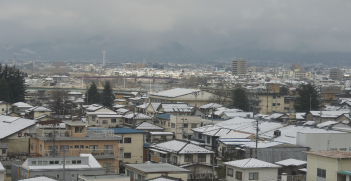Abe Shinzo’s Underwhelming Political Legacy

Prime Minister Abe Shinzo has done little to deserve the credit he receives internationally. Despite serving the longest prime ministership in Japanese history, his lack of domestic popularity will likely consign him to history as an unremarkable leader.
Japan’s Prime Minister, Abe Shinzo appears to have two distinct political personae: a largely positive one, reflecting his generally favourable international image, and a far more problematic one consistent with his decidedly less positive domestic image. While his remarkable political longevity is indeed impressive, sceptics maintain that this has more to do with the superficial political stability that Abe’s continued presence implies, as well as the growing hollowness of the prime minister’s position in Japan.
Abe’s political legacy amounts to much less than he is often accredited internationally. In Japan, Abe’s reputation is much less positive, and if anything, is characterised by his great unpopularity. His first term as Prime Minister ominously ended in 2007. East Asia Forum contributor, Tobias Harris, previously wrote about “Abe’s uncertain legacy in Japan.” Earlier this year, an overview of the 2019 G20 Summit, carried out by the usually docile Japan Times in June, admitted that the achievements of the Osaka Summit, over which Abe presided, were limited. With their disparate membership and often mixed objectives, G20 Summits are not always as good as their hosts would have wished. As host of a G20 Summit in Brisbane in 2014, Australia has good reason to recall the low points along with some high points of economic mini summitry.
Abe Shinzo’s life and political career is characterised by under-achievement and by missed opportunities, to put it kindly. Although leader of the Liberal Democratic Party for a record 12 years, observers have struggled to identify his legacy. This is hardly surprising; he has spent much of his time as leader facing considerable domestic unpopularity in opinion polls. While his “ascendancy” is perhaps unchallenged, one can only remark on the absence of a strong or charismatic alternative.
Despite being from an impeccable conservative background, with former conservative Prime Ministers Eisaku Sato and Nobusuke Kishi among his antecedents, Abe has failed to ignite momentum toward right-wing causes, such as constitutional reform or changes in Japan’s military profile, let alone more general political reform. His attempts at economic reform after 2012 – so-called “Abenomics” – are often regarded in Japan and elsewhere as unimpressive.
It seems that Abe was not especially academically gifted as a young man. He did not attend any of Japan’s famous public or private universities, but rather the respectable, but undistinguished, Seikei University. Following this he spent a period of time at the University of Southern California. Despite this, his life-long weakness in English has apparently necessitated bureaucratic attempts to disguise it.
It’s not as if Abe has inspired Japan’s policy makers with novel domestic or international initiatives. His notion of “a free and open Indo-Pacific” should be viewed sceptically given the well-known closed nature of both the Japanese (and Indian) economies and societies. As Australian political scientist Professor Aurelia George Mulgan has commented, “under the Abe government Japanese democracy is no longer vigorous, but complacent.”
Abe’s reputed closeness to Washington has not provided much in the way of progress. Again, the editors of the East Asia Forum can claim the last word. Japan manages to muddle through, suggesting perhaps that the failure of its political leaders may not matter that much. At least Japan is not as clearly in the firing line of the US bureaucracy and business as it was in the past.
Trevor Wilson is a visiting fellow at the Department of Political & Social Change at the Coral Bell School of Asia Pacific Affairs. He has spent more than twelve years in Japan as a diplomat and served three times in the Australian Embassy in Tokyo.
This article is published under a Creative Commons Licence and may be republished with attribution.





